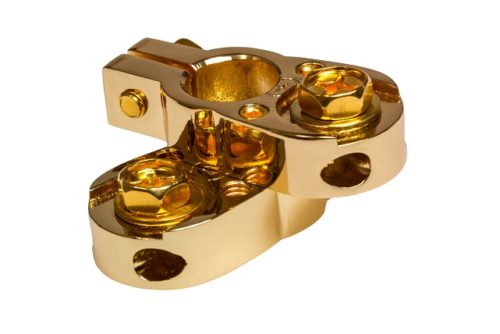
Electrical contacts are essential electronic circuit components in any device that controls the flow of electricity. Primarily found in circuit breakers, relays, connectors, and switches, contacts open and close the electrical circuit running through the device. When contacts are connected, the circuit is “closed” and able to carry current. Conversely, when contacts are separated by an insulating air gap, the circuit is “open” and interrupted.
Many standard and custom electrical contacts are comprised of conductive metals, such as nickel, copper, cadmium, and other various alloys. Although these materials are capable, they can and do degrade over time due to oxidation, corrosion, erosion, and heat. For this reason, many manufacturers apply a thin layer of gold plating with a nickel undercoating to protect their contacts and improve their capabilities.
Why Use Gold Plating?
You’re probably wondering why electrical contact manufacturers use gold plating; after all, the precious metal is expensive. However, gold has various physical and chemical properties that make it ideal for electronic applications. Here are some that make it a solid long-term return on investment.
- Better corrosion protection: Gold boasts an incredible resistance to oxidation, which produces corrosion; this makes it ideal for contacts exposed to corrosive environments or agents.
- Improved electrical conductivity: Corrosive environments and agents degrade metals commonly used in contacts, thus interfering with their conductivity. Gold doesn’t break down under these conditions and protects the contacts from corrosion and rust.
- Increased durability: Gold provides considerable protection from regular wear and tear like fretting, which is erosion caused by repeated rubbing and friction; this can considerably prolong a contact’s lifespan.
- Ease of application: An electrical contact requires just a very thin layer of plating—any excess coating will negatively inhibit its efficiency. Gold is an incredibly malleable metal, making it very simple to apply the proper amount of plating for each unique application.
- Excellent heat resistance: Gold’s properties make it a valid form of protection for contacts routinely exposed to high temperatures (>125°C/257°F).
